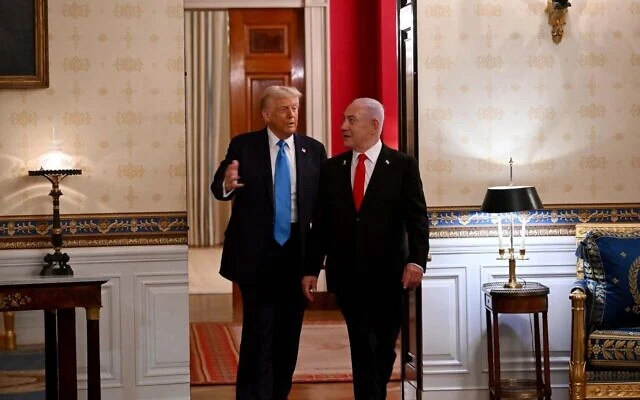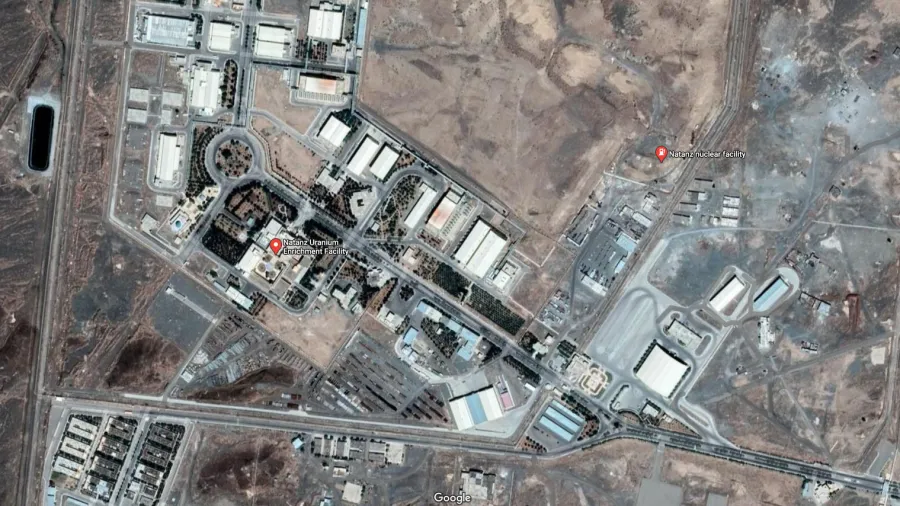Is Israel ready and willing to strike Iran’s nuclear facilities?
This is not an idle question. It goes to the heart of current tensions in the Middle East.
Israel has been contemplating this potentially risky military option for more than a decade. But of late, Israel appears to have moved closer to implementing this objective, which, if carried out, could upend the balance of power in the region.
Several days ago, The Washington Post reported that the U.S. Joint Chiefs of Staff and the Defence Intelligence Agency believe that Israel is mulling the possibility of carrying out preemptive air strikes against the Fordo and Natanz nuclear sites.
According to Washington Post columnist David Ignatius, Israel is demanding Iran’s abandonment of its nuclear program. “Israel wants to seize the moment,” he wrote, citing Israeli and U.S. officials.
This may be mere speculation, but no one can deny that Iran’s nuclear program poses a major security threat to Israel and other Middle Eastern states, as the directors of British and French national intelligence agencies recently pointed out.
Two months ago, Rafael Grossi, the director-general of the International Atomic Energy Agency, warned that Iran has quadrupled its production of near-bomb grade nuclear material. “It is a dramatic acceleration,” he said in a reference to Iran’s manufacture of 60 percent enriched uranium.

Iran resumed uranium production in 2018, shortly after the first Trump administration unilaterally pulled out of the 2015 Iran nuclear agreement, which Israel opposed.
Earlier this month, current and former U.S. officials said that Iran is exploring a faster, if cruder, approach to developing an atomic bomb.
Iran claims that its nuclear program is solely intended for civilian purposes, but the enrichment levels it has reached mesh with military purposes.
That said, Iran has yet to decide whether it should develop nuclear weapons. Until now, Iran has disingenuously claimed that its membership in the nuclear would violate its Islamic principles.
Realistically, Iran is probably working on the assumption that it needs nuclear weapons to counter potential threats by Israel and the United States. This may explain why hardliners in Tehran have called for an Iranian nuclear shield.
In the meantime, Iran seems ready to give diplomacy a chance. On February 9, Iranian Foreign Minister Abbas Araghchi said that Iran stands ready to negotiate a new nuclear agreement with the United States, but not under Trump’s “maximum pressure” strategy.
“The lifting of sanctions requires negotiations, but not within the framework of a ‘maximum pressure’ policy, because it would not be a negotiation but a form of surrender,” he said in a statement published on Telegram.

Araghchi’s comment came after Iran’s supreme leader, Ayatollah Ali Khamenei, questioned the wisdom of negotiating with the United States, calling it “reckless.”
Prime Minister Benjamin Netanyahu, who regards Iran as Israel’s deadliest foe, has been thinking of striking its nuclear sites since at least 2010. In his view, U.S. President Donald Trump would be more amenable to Israeli military action than his predecessor, Joe Biden.
The Biden administration was strenuously opposed to an Israeli attack, fearing it would trigger a fierce Iranian response, set off a regional war that could draw in the United States, and destabilize the global economy.
Trump may not be as cautious as Biden, but on January 23 he voiced the hope that this problem can be resolved through negotiations rather than military means.
On February 10, Trump reiterated his position.
“I think we’re gonna make a deal in Iran,” he told Fox News. “I think they’re scared. I think Iran would love to make a deal and I would love to make a deal with them without bombing them. Everyone thinks Israel, with our help or our approval, will go in and bomb the hell out of ’em. I would prefer that not happen.”

On February 2, Trump’s ally, Senator Lindsey Graham, endorsed an Israeli strike. “I think America should support an effort by Israel … to decimate the Iranian nuclear program because I think it is a threat to mankind … There is an opportunity to hit the Iran nulear program in a fashion I haven’t seen in decades.”
Last November, Strategic Affairs Minister Ron Dermer reportedly left a meeting with Trump, the then-president-elect, with the impression that he would either support an Israeli strike or order one himself.

Around the same time, Defence Minister Israel Katz said, “Iran today is more exposed than ever to damage to its nuclear facilities. There is a chance of achieving the most important goal, to thwart and remove the threat of annihilation from hanging over the State of Israel.”
More recently, Netanyahu said that Israeli strikes in Iran last October had destroyed “industrial factories of death.” As he put it in a speech to the Knesset, “We severely damaged Iran’s defence systems and its ability to export missiles.”
In another speech, Netanyahu said that Israel now has “greater freedom to operate in Iran than ever before.”
He and Katz were referring to Israeli strikes on October 26 that knocked out Iran’s S-300 air defences as well as its missile production infrastructure. These attacks, The New York Times reported, “raised deep alarm” in Iran that its critical energy and economic hubs are vulnerable to future Israeli strikes.
Since last April, Iran and Israel have attacked each other in four retaliatory rounds of direct fighting. While Iran has fired hundreds of drones and ballistic missiles at Israel, with the vast majority having been shot down, Israel has deployed aircraft and drones in counter strikes.
The challenge that Iran poses to Israel is neatly summarized by Yaakov Lappin in a paper written for the Begin-Sadat Center for Strategic Studies in Tel Aviv: “If Iran’s nuclear advancements continue unchecked, Israel risks facing a fait accompli — a nuclear Iran that begins rebuilding its path toward its ambition of Israel’s collapse by the year 2040, as the infamous clock in Tehran indicates.
“A nuclear-armed Iran would quickly embark on a program to rebuild its shattered proxies and reconstruct the Iranian ring of fire around Israel while bullying Sunni powers into submission and seeking to destabilize them. A nuclear Iran would likely shield its proxies and allies, especially Hezbollah, under a nuclear umbrella. Striking now would prevent this scenario while Iran’s proxy networks remain severely weakened.
“Following significant setbacks to Iran’s air defences and missile production infrastructure in Israel’s October 26 strikes, Iran is currently extremely vulnerable. Israel achieved near-uncontested aerial supremacy in Iranian skies during the October 26 strikes, demonstrating the feasibility of further operations.
“On the other hand, a unilateral Israeli strike might trigger prolonged missile exchanges with Iran itself, in a continuation of the long-range firepower exchanges of blows between Tehran and Jerusalem.
“In addition, it could be argued that acting without the explicit backing of the United States or other allies may strain diplomatic ties and limit Israel’s ability to mitigate fallout from the strike. Should Iran choose to disrupt the global energy market, the fallout would be even more severe.
“At the same time, waiting for American diplomatic and potential military support could lead to a better strike opportunity.
“Immediate action offers Israel a chance to neutralize an existential threat while Iran is vulnerable but carries the risks of escalation, isolation, and limited international support. Waiting suggests stronger diplomatic and military backing but risks Iran’s advancing its nuclear capabilities beyond the point of no return.
“Israel must weigh these factors carefully. And while the decision must be heavily influenced by intelligence on the real-time status of Iran’s nuclear program, Israeli decision makers must take into account the danger of unknown unknowns when it comes to Iran’s nuclear program.”
Clearly, Israel faces a momentous moment as it ponders the feasibility of striking Iran’s nuclear sites.
